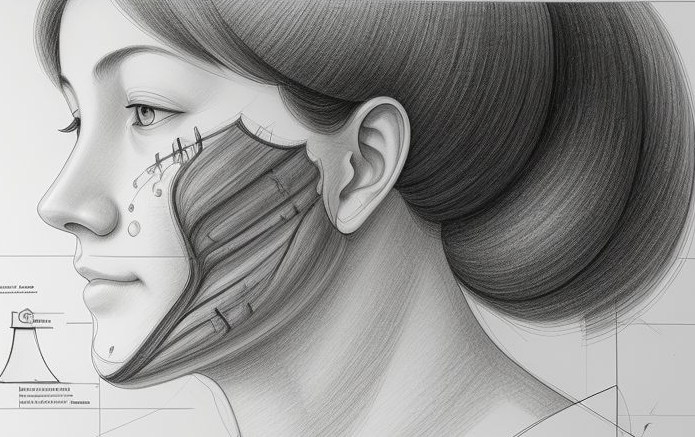Our skin is constantly exposed to a barrage of environmental stressors and pollutants that can take a toll on our health and appearance. From air pollution and UV radiation to harsh weather conditions and lifestyle factors, these external influences can lead to a range of skin problems, including premature ageing, dullness, and irritation. We’ll talk about the various ways that pollution and environmental stressors can impact our skin and provide tips and examples for protecting and nurturing your skin in the face of these challenges.
Impacts of Air Pollution on Skin
One of the most significant environmental stressors our skin faces daily is air pollution. Whether you live in a bustling city or a more rural area, the air around you is filled with tiny particles and chemicals that can damage your skin over time.
How Air Pollution Affects Skin Health
Air pollution can affect our skin in a number of ways, including:
- Premature ageing: Exposure to air pollution can accelerate the ageing process, leading to fine lines, wrinkles, and age spots.
- Dullness and uneven tone: Pollutants can rob our skin of its natural radiance, leaving it looking dull and lifeless.
- Irritation and sensitivity: Chemicals in the air can irritate our skin, causing redness, itching, and other uncomfortable symptoms.
Example: If you live in a city with high levels of air pollution, you may notice that your skin looks older than your actual age or that you experience more frequent breakouts or sensitivity.
Tips for Protecting Your Skin from Air Pollution
While we can’t always control the quality of the air around us, there are steps we can take to minimize the impact of air pollution on our skin:
- Cleanse regularly: Washing your face twice a day helps remove pollutants and other impurities that can clog pores and damage skin.
- Use antioxidant-rich products. Antioxidants help neutralize the harmful effects of free radicals, unstable molecules that can damage skin cells.
- Wear protective clothing: Covering up with long sleeves, hats, and sunglasses can help shield your skin from pollutants and other environmental stressors.
Sun’s Rays: UV Radiation and Skin Damage
Another major environmental factor that can wreak havoc on our skin is UV radiation from the sun. While some sun exposure is necessary for our bodies to produce vitamin D, too much can lead to a host of skin problems.
Dangers of UV Radiation
Overexposure to UV radiation can cause:
- Sunburn: This painful redness and inflammation is a sign that the sun’s rays have damaged your skin.
- Premature ageing: UV radiation breaks down collagen and elastin in our skin, leading to wrinkles, sagging, and age spots.
- Skin cancer: Prolonged exposure to UV radiation is the leading cause of skin cancer, including melanoma.
Example: If you spend a lot of time outdoors without proper sun protection, you may notice that your skin looks weathered and leathery, with deep wrinkles and dark spots.
Tips for Protecting Your Skin from UV Radiation
To minimize the damage caused by UV radiation, it’s essential to:
- Wear sunscreen every day: Choose a broad-spectrum sunscreen with an SPF of at least 30 and apply it generously to all exposed skin.
- Seek shade: Avoid spending prolonged periods in direct sunlight, especially during peak hours (10 am-4 pm).
- Cover up: Wear protective clothing, such as long-sleeved shirts, wide-brimmed hats, and sunglasses, when spending time outdoors.
Harsh Weather Conditions and Skin Health
In addition to air pollution and UV radiation, harsh weather conditions can also damage our skin. Whether it’s the dry, cold air of winter or the hot, humid conditions of summer, extreme weather can disrupt our skin’s delicate balance.
Impact of Cold Weather on Skin
Cold, dry air can strip our skin of its natural oils, leading to:
- Dryness and flakiness: Skin may feel tight, itchy, and uncomfortable, with visible flakes and roughness.
- Irritation and redness: Harsh winds and low humidity can irritate sensitive skin, causing redness and inflammation.
- Chapping and cracking: In severe cases, the skin may become so dry that it cracks and bleeds, increasing the risk of infection.
Example: If you live in a cold climate and spend a lot of time outdoors in the winter, your skin may become dry, flaky, and prone to irritation.
Tips for Protecting Your Skin in Cold Weather
To keep your skin healthy and hydrated during the colder months, try:
- Using a humidifier: Adding moisture to the air can help prevent skin from becoming too dry.
- Moisturizing regularly: Choose a rich, emollient moisturizer and apply it liberally to damp skin to lock in hydration.
- Protecting your skin from the elements: Wear gloves, a scarf, and other protective gear to shield your skin from harsh winds and cold temperatures.
Impact of Hot, Humid Weather on Skin
On the other end of the spectrum, hot, humid weather can also wreak havoc on our skin, leading to:
- Excess oiliness: Heat and humidity can stimulate our skin’s oil glands, leading to a greasy, shiny appearance.
- Breakouts and acne: When sweat and oil mix with bacteria on our skin, it can clog pores and lead to breakouts.
- Heat rash and irritation: Prolonged exposure to heat and moisture can cause uncomfortable rashes and irritation.
Example: If you live in a tropical climate or spend a lot of time outdoors in the summer, you may notice that your skin becomes oily, prone to breakouts, and easily irritated.
Tips for Protecting Your Skin in Hot, Humid Weather
To keep your skin cool, calm, and collected during the hotter months, try:
- Cleansing regularly: Use a gentle, oil-free cleanser to remove excess oil, sweat, and impurities from your skin.
- Using lightweight, non-comedogenic products: Choose skincare and makeup products that won’t clog your pores or feel heavy on your skin.
- Staying hydrated: Drink plenty of water and use a light, hydrating moisturizer to keep your skin balanced and healthy.
Impact of Lifestyle Factors on Skin Health
In addition to environmental stressors, lifestyle choices can significantly impact the health and appearance of our skin.
Effects of Poor Sleep on Skin
When we don’t get enough quality sleep, it can show up on our skin in the form of:
- Dark circles and puffiness: Lack of sleep can cause fluid retention and blood vessel dilation, leading to dark circles and bags under the eyes.
- Dullness and uneven tone: Poor sleep can slow down cell turnover, leading to a buildup of dead skin cells and a lacklustre complexion.
- Accelerated ageing: During sleep, our skin repairs and regenerates itself, so skimping on shut-eye can lead to premature ageing.
Example: If you’re consistently getting less than 7-8 hours of sleep per night, you may notice that your skin looks dull, tired, and older than your actual age.
Tips for Getting Better Sleep for Healthier Skin
To promote healthy, glowing skin through better sleep, try:
- Sticking to a consistent sleep schedule: Go to bed and wake up at the same time every day to regulate your body’s natural sleep-wake cycle.
- Creating a relaxing bedtime routine: Wind down before bed with calming activities like reading, taking a bath, or practising gentle stretches.
- Optimizing your sleep environment: Keep your bedroom calm, dark, and quiet, and invest in a comfortable mattress and pillows.
Effects of Stress on Skin
Another lifestyle factor that can take a toll on our skin is chronic stress. When we’re stressed out, our bodies produce excess cortisol and other hormones that can:
- Increase oil production: Stress hormones can stimulate our skin’s oil glands, leading to breakouts and acne.
- Trigger inflammation: Chronic stress can exacerbate inflammatory skin conditions like eczema and psoriasis.
- Accelerate ageing: Stress can break down collagen and elastin in our skin, leading to fine lines, wrinkles, and sagging.
Example: If you’re going through a particularly stressful period at work or in your personal life, you may notice that your skin looks oilier, more inflamed, and less vibrant than usual.
Tips for Managing Stress for Healthier Skin
To minimize the impact of stress on your skin, try:
- Practicing stress-reducing techniques: To calm your mind and body, engage in activities like deep breathing, meditation, or yoga.
- Prioritizing self-care: Make time for activities that help you relax and recharge, such as reading, taking a bath, or spending time in nature.
- Seeking support: Don’t be afraid to ask friends, family, or a mental health professional for help managing stress.
Role of Diet in Skin Health
Finally, the foods we eat can also have a significant impact on the health and appearance of our skin.
Effects of an Unhealthy Diet on Skin
A diet high in processed, sugary, and inflammatory foods can lead to:
- Breakouts and acne: Foods with a high glycemic index can increase oil production and trigger breakouts.
- Dullness and uneven tone: A diet low in antioxidants and other vital nutrients can lead to a lacklustre, uneven complexion.
- Accelerated ageing: Inflammatory foods and sugar can break down collagen and elastin in our skin, leading to premature ageing.
Example: If you’re consistently eating a diet high in processed snacks, refined carbohydrates, and sugary drinks, you may notice that your skin looks dull, congested, and prone to breakouts.
Tips for Eating for Healthier Skin
To promote healthy, glowing skin through your diet, try:
- Eating a rainbow of fruits and vegetables: Colorful produce is packed with antioxidants, vitamins, and minerals that support healthy skin.
- Choosing healthy fats: Foods rich in omega-3 fatty acids, like fatty fish, nuts, and seeds, can help reduce inflammation and promote supple, hydrated skin.
- Limiting processed and sugary foods: Cut back on refined carbohydrates, sugary snacks and drinks, and other inflammatory foods that can damage skin health.
Final Thoughts
Our skin is constantly exposed to a range of environmental stressors and pollutants that can damage its health and appearance. From air pollution and UV radiation to harsh weather conditions and lifestyle factors, these external influences can lead to a range of skin problems, including premature ageing, dullness, and irritation.
However, by understanding the impacts of these stressors and taking steps to protect and nurture our skin, we can help minimize damage and promote a healthy, glowing complexion. This may involve using antioxidant-rich skincare products, wearing sunscreen and protective clothing, staying hydrated, getting enough sleep, managing stress, and eating a nutrient-rich diet.
Remember, It may take some trial and error to find the skincare routine and lifestyle habits that work best for you. However, by staying informed and proactive about your skin health, you can help your skin look and feel its best, no matter what environmental stressors come your way.


This site was… how do you say it? Relevant!! Finally I have found
something which helped me. Thank you!